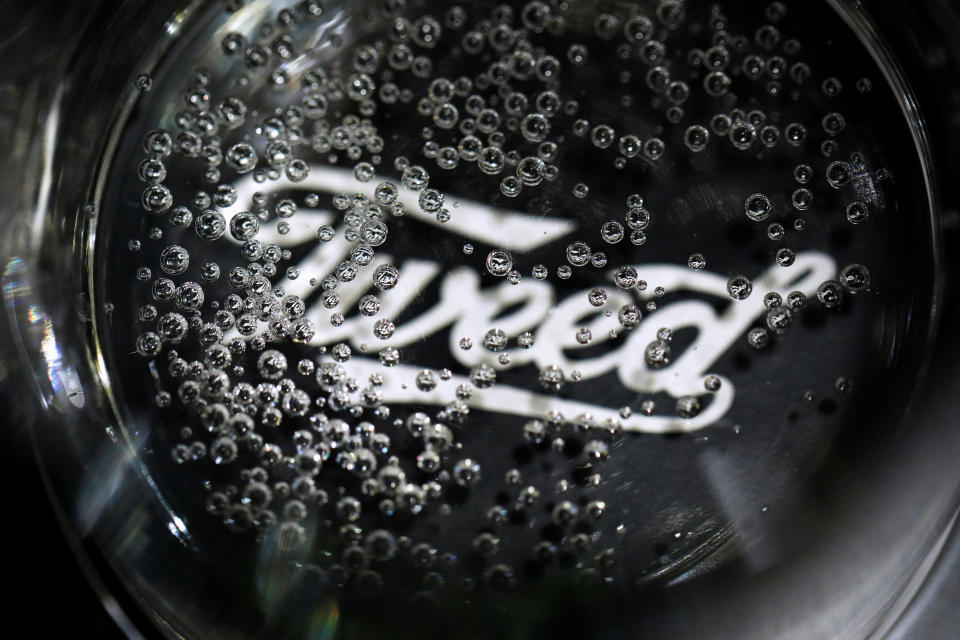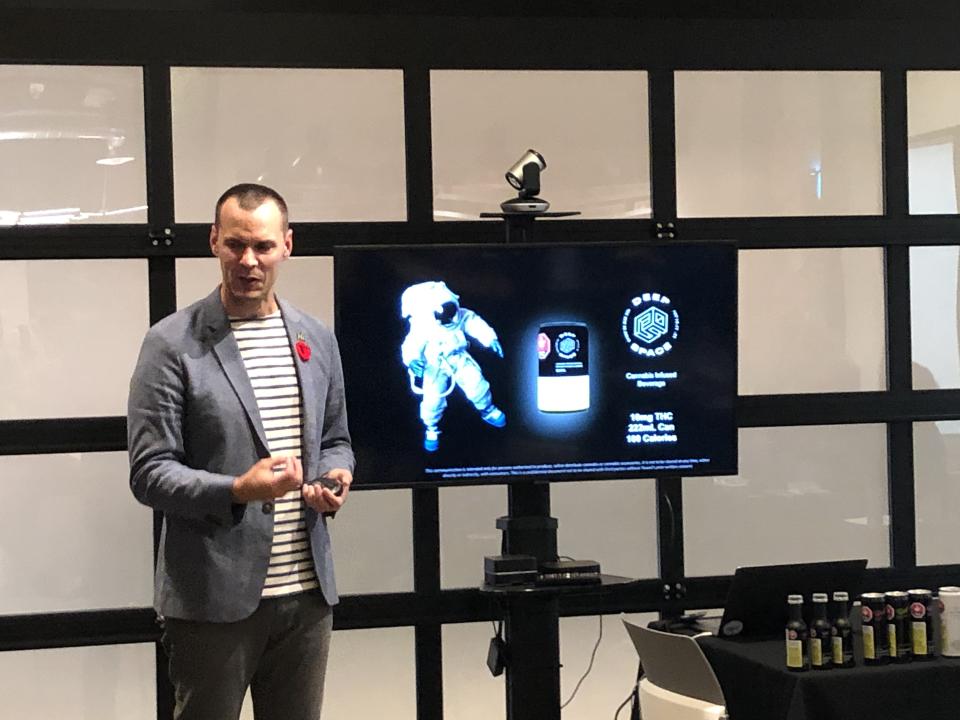Canopy Growth knew about THC-sucking drink cans 10 months ago

Canopy Growth (WEED.TO)(CGC) first realized last April that the thin liners inside aluminum cans could suck the cannabis buzz from their much-anticipated line of pot drinks.
Newly appointed CEO David Klein said the problem was among several beverage-related growing pains the company faced ahead of the planned launch it delayed last month.
“There is an interplay with the cans and the chemistry in the drink itself,” Klein said in an interview with Yahoo Finance Canada. Jordan Sinclair, Canopy’s vice president of media and communications, clarified earlier that cannabinoid-leaching cans were first identified as a risk by the company in April 2019.
Scientists have determined the liners can attract emulsified droplets of active cannabis ingredients over time when pot beverages are under pressure, leading to a less effective high when consumed.
Klein declined to spell out the specific causes of Canopy’s drinks delay.
“I wouldn’t say it’s one thing,” he said, noting issues with can liners have been known to impact non-cannabis drinks as well. The liners are added by manufacturers to reduce metallic taste, and prevent the can from corroding. He said Canopy has experimented with several over time.
The company has spoken publicly about introducing drinks to Canada’s legal cannabis market for about two years, around the time Constellation Brands (STZ) purchased a majority stake in the pot producer.
The company revealed several THC and CBD-infused beverages last October, including a product designed to be mixed with non-alcoholic beverages at home, and a sparkling drinks line designed by actor Seth Rogen.

The size of the market for infused beverages remains to be seen, with few available for sale legally in Canada. Drinks have consistently ranked among the smallest categories by sales in U.S. states where cannabis is legal.
Last month, California-based Grand View Research forecast the global market for cannabis drinks would reach US$2.8 billion by 2025, growing at a compound annual rate of nearly 18 per cent.
Companies like Canopy have promoted pot beverages as the most viable alternative to beverage alcohol, able to deliver a calorie and hangover-free high without certain health risks associated with booze or inhaling smoke.
Speaking on the conference call with analysts following the release of Canopy’s latest quarterly results last Friday, Klein said one board member, after tasting a sample of the infused drinks a few weeks ago, sent him a text simply reading “game changer.”
Klein, a 16-year veteran of the American beer and wine giant who took on the top job at Canopy last month, said complications arose at Canopy when transitioning beverage production from lab-scale to commercial-scale.
Canopy said it received its licence from Health Canada for its beverage facility at its Smith Falls, Ont. headquarters in late November after submitting final documentation in June.
The company said in December that its first batch of beverages, Tweed Houndstooth & Soda, Houseplant Grapefruit, and Houseplant Lemon, would hit the market in January. On Jan. 17, it abruptly delayed the launch, offering few details at the time.
“It’s a bit of a quirk around some of the Health Canada licencing where we actually couldn’t produce in the facility that we were ultimately going to produce in until literally 30 days before we were planning on being in the market,” Klein said.
Among the problems, the drinks Canopy produced in small batches did not have the same look and taste when produced in the new 125,000-square foot factory designed with the help of experts from Constellation, he said. Quality assurance testing must start over every time a change to a beverage is made.
While the company’s debut as a large-scale cannabis beverage producer is by no means the first milestone to face delay since Canada legalized recreational cannabis on Oct. 17, 2018, Klein said he regrets the setback.
“I think there was pressure on the company, and all companies really, to talk about what they were going to do around [cannabis] 2.0... Maybe we wanted a bit of fanfare around the kickoff,” he said. “[Now] we have retailers that have cold boxes in their store, and we don’t have anything to put in there.”
Klein said he now expects Canopy’s beverages to hit stores in “a few months.”
“If I could give a date that I felt good about, I would trip over myself to do it,” he said. “If I had to do it over again, I would have given ourselves a lot more wiggle room once we actually started producing at commercial scale.”
Jeff Lagerquist is a senior reporter at Yahoo Finance Canada. Follow him on Twitter @jefflagerquist.
Download the Yahoo Finance app, available for Apple and Android.

 Yahoo Finance
Yahoo Finance 
